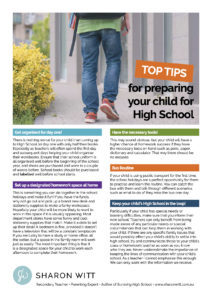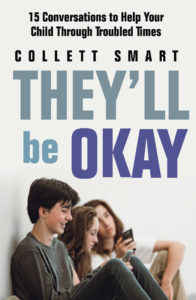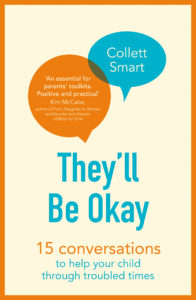Starting Secondary School – Top Tips
by Sharon Witt

The beginning of the new school year is rapidly approaching and thousands of teenagers (and their parents) across the country are settling in for a full year ahead in secondary school. Whilst for some, this marks the beginning of an entirely new stage in their schooling, others are buckling in for another year ahead of academic rigor.
The following are a few tips by parenting author and High School educator, Sharon Witt, to help your young person navigate the year ahead at high school and also provide some ideas for parents to support them on their journey. Sharon has co-authored, ‘Starting Secondary School’ (Penguin), with Dr Michael Carr-Gregg.
In Preparation
Organization tools to support success
We would like to assume that our teenager will naturally develop strong organizational skills and be a self-motivated young person. However, this is not often the case, and in fact, as parents we need to model organization tools and strategies for our young people. Creating a family calendar that is visible to your teenager is helpful, as is including key term dates, camps, sports days and excursions.
Create a space in the home for communication to and from school- whether that be a folder or notice tray where school letters can be kept and signed forms left for your teen to hopefully remember to return to school (don’t hold your breath 🙂 )
When starting secondary school, ensure your child not only has a school diary, but also uses it on a daily basis to record homework, assessment tasks and tests. Take a look at it regularly and ask questions if there are weeks of blank pages.
Create and support a homework plan
Many teenagers, as well as their parents, find homework an inconvenience to their life. However, if homework is set for your teenager, it is better to set them up for success rather than ignore the issue. Ensure your child has a well-lit space where they can complete homework each night, ensuring they also have the correct tools- pens, rulers, whiteout, paper, calculator etc (a stationery tub or set of small drawers is helpful for the home.) Ensure their social media devices are in another space and keep healthy snacks such as fruit, nuts, and dips at the ready so their brain can be nourished during study time. Encourage your teenager to get into the habit of creating a ‘To do’ list which enables them to set 2 or 3 tasks that can be completed then ticked off after completion.
Prepare for a successful day ahead
The best way to set the scene for a successful day ahead is to ensure that your teenager eats a healthy breakfast and takes a nutritious and balanced lunch with plenty of snacks to keep their brain focused throughout the day. Also ensure your child gets plenty of sleep. This is becoming increasing difficult as an unprecedented number of teenagers are reporting sleep issues as a concern, many finding it difficult to fall asleep or waking up and not being able to fall asleep again. Most teenagers require 8-10 hours of sleep each night, with many reporting less than 5, leading to an increased sleep deficit. Removing internet enabled devices from the bedroom is important for instilling boundaries for our young people who often lack the self-control to avoid engaging online when they should be sleeping. This is where adults need to develop their ‘digital spine’ and either insist devices are placed in a central charging area in the home, away from bedrooms or disable the internet at a nominated time each evening. Many teenagers would also benefit from utilizing a sleep routine such as reading half an hour before bed, warm bath or shower and warm milk drink. If sleep continues to be an issue, it would be worth a visit to your local GP for a consultation to rule out any other underlying issues.
In Conversation
Communicate with school
Communication with the school is important in aiding a successful school year for your teenager. Familiarise yourself with the names of teachers your child has for each subject, the Year Level Coordinator, and particularly their Pastoral Care/Homeroom teacher. If your child has any specific learning or behavioral issues it is important to communicate this with their teachers. Don’t assume that information will be passed on from previous teachers- whilst this is the ideal, it may not always occur so it is well worth sending an introductory email outlining any information that would be helpful for those that teach your child. Far from initiating ‘red flags’ to teachers, it is actually much more helpful to be made aware of any particular learning needs your child has and any suggested strategies that have been successful in the past.
Be sure to communicate any early concerns regarding your teen’s experience at school to the relevant teacher as soon as you become aware of it. As a secondary teacher myself, I can’t stress the importance of parents letting us know of issues before they become big problems. We can only deal with information you share with us, so by all means, call the school, email the pastoral care teacher and make an appointment to discuss any issues.
It can be annoying wading through the mountain of communication that arrives home via your teen’s schoolbag (if indeed it does make it home!) or flooding your inbox, however it IS important that you do in fact, READ the communication from school. Note important term dates, sports days, excursions and camps in your diary. The most effective way to know what is going on in the life of the school you have chosen for your teenager is to read the information that is provided to you.
Encourage your teen to find their spark!
The school year is long and can be exhausting at times, and it is NOT the be all end all. Encourage your teenager to find their spark. Ensure that they are involved in activities they can look forward to and bring them joy. This may be a sporting team or regular activity that gets their body moving, or an interest such as music, dance, art or anything else they have a passion for. Having an interest outside of school that encourages socialising and developing friendships is also great for resilience.
Last thoughts – Make time to chat about school
Finally, keep the lines of communication open with your teenager about their school experiences. Whilst you may be met with an awkward grunt when you ask about their day at school, don’t give up on asking. Also look for other opportunities to create conversations with your young person. Often a teenager will chat whilst you are driving in the car or if you have regular café dates. Just remind your child that you are always available to listen- listening being the crucial point here. Many adolescents don’t want you to fix their concerns, may just need you to listen.
Talk about the positive experiences you had during your own High School years and reassure your teen that it will go by quicker than they can imagine.

Surviving High School (for students)

Starting Secondary School (for parents)
Sharon has produced a FREE downloadable pdf of this article, for schools to print out or attach to their newsletters. Printable version here.






 My name is Collett Smart. I am a psychologist, qualified teacher, speaker, podcaster and internationally published author, with more than 25 years experience working in private and public schools, as well as in private practice. I am married and have 3 children aged aged 22, 20 and 14 years-old.
Welcome to Raising Teens!
My name is Collett Smart. I am a psychologist, qualified teacher, speaker, podcaster and internationally published author, with more than 25 years experience working in private and public schools, as well as in private practice. I am married and have 3 children aged aged 22, 20 and 14 years-old.
Welcome to Raising Teens!